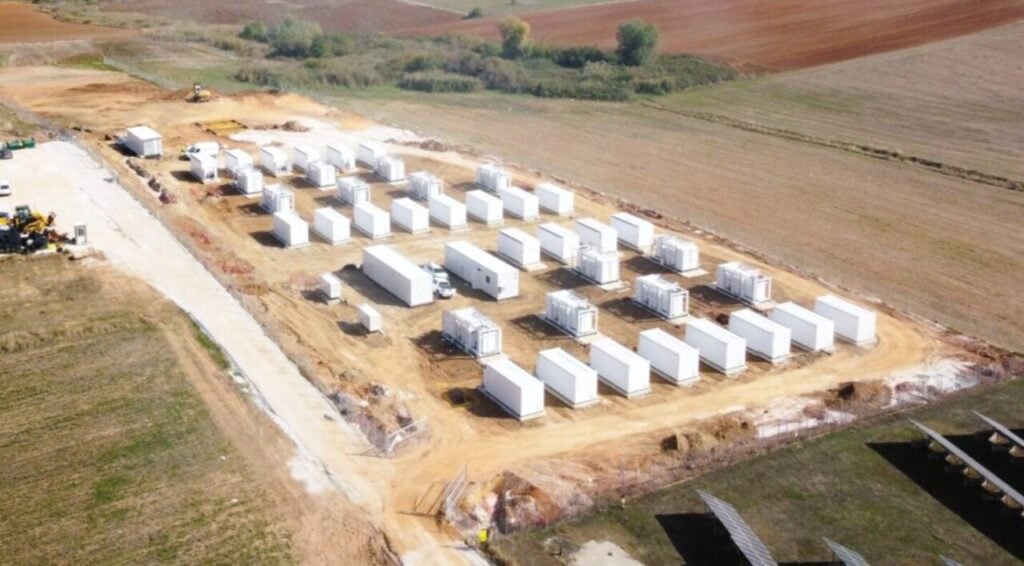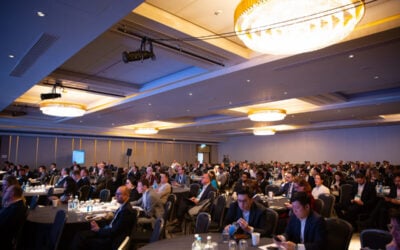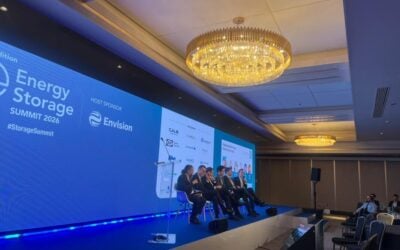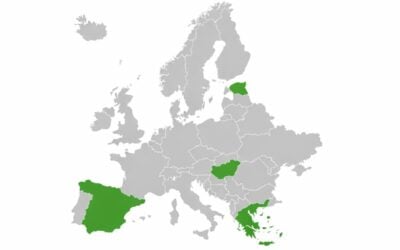
Trina Storage will supply technology for one of Greece’s largest battery energy storage systems, as state-backed PPC Renewables advances construction on its 50MW/200MWh Amyntaio project in Western Macedonia.
The Chinese energy storage manufacturer and system integrator, which is the energy storage arm of the major vertically integrated solar PV company Trinasolar, announced the supply deal on 12 November, describing the project as a “cornerstone of its future pipeline in the region.”
PPC Renewables had previously announced the start of construction in late October without disclosing the technology supplier. PPC Renewables is a clean energy development subsidiary of Public Power Corporation Group (PPC). PPC Group, in turn, is Greece’s largest electricity provider, and the Hellenic Republic Asset Development Fund, a sovereign wealth fund, its largest shareholder.
Trina Storage will deliver a 244MWh nameplate capacity turnkey AC BESS solution, featuring 60 of its Elementa 2 DC block battery cabinets alongside eight integrated power conversion system (PCS) and medium-voltage skid enclosures. The companies have also signed a long-term service agreement covering maintenance, remote monitoring and spare parts, backed by 10-year performance and availability guarantees.
Try Premium for just $1
- Full premium access for the first month at only $1
- Converts to an annual rate after 30 days unless cancelled
- Cancel anytime during the trial period
Premium Benefits
- Expert industry analysis and interviews
- Digital access to PV Tech Power journal
- Exclusive event discounts
Or get the full Premium subscription right away
Or continue reading this article for free
The Elementa 2 platform, introduced at the Energy Storage Summit EU in London in February 2024, incorporates Trina Storage’s proprietary 306Ah high energy density lithium iron phosphate (LFP) cells. Each system delivers 4,073kWh capacity in a standard 20-foot ISO shipping container configuration, featuring liquid cooling and four levels of threat detection, including integrated Honeywell Li-ion Tamer gas detection technology and automatic aerosol-based fire suppression systems.
The Amyntaio project will perform grid services applications such as frequency regulation, renewable energy integration and provide capacity resource adequacy.
The project is at the site of PPC’s Amyntaio thermal power plant (Amyntaio TPP), a 600MW coal-fired generation facility in the Western Macedonian town.
PPC investing billions in green energy transformation of Western Macedonia’s lignite legacy
PPC Group is building energy storage projects in the Western Macedonia administrative region of northern Greece with a cumulative grid output of 860MW.
It announced the start of construction in May of two BESS projects totalling 98MW/196MWh, scheduled for completion before the end of this year. The projects were among the winners of government contracts through an electricity storage capex support scheme (ESN Premium article) in 2023.
The pipeline of in-development and under-construction projects also includes two pumped hydro energy storage (PHES) plants at repurposed mining sites, one at Kardia mine (320MW/2,560MWh, 8-hour duration) and the other at South Field mine (240MW/2,880MWh, 12-hour duration).
The Kardia project represents an investment worth €430 million (US$500 million) and South Field €310 million, PPC said in an announcement in April, when the company said it would invest nearly €6 billion in various green energy projects in Western Macedonia. The region is historically significant in Greece’s energy sector as a prominent source of lignite coal.
The group is also seeking agreements with hyperscale data centre developers to allow the construction of a 300MW data centre facility at Agios Dimitrios, another power plant site in the region.
Capex support scheme, regulatory changes spur Greek market development
Greece’s energy storage market has been catalysed by the government capex support tenders administered by the Regulatory Authority for Energy, Waste, and Water (RAEEY). The structured approach has provided crucial market certainty for developers and technology providers entering the Greek market, alongside regulatory changes to make licensing, permitting and market participation requirements clearer.
Following the first in 2023, the second RAEEY competitive solicitation awarded 300MW in early 2024 while a third scheduled for late 2024 was cancelled due to confusion over the entry requirements. The third was eventually rerun in March this year, procuring a lower 189MW of capacity from nine 4-hour duration BESS projects (755.6MWh).
They all awarded project developers with long-term support of around €50,000 per year, the first two slightly less, the third slightly more.
Last month saw IPP Principia complete construction on a 49MW/127.04MWh in Chalkidiki, in the Central Macedonia region of Greece, quite possibly the largest in the country.
Additional reporting by Andy Colthorpe.





